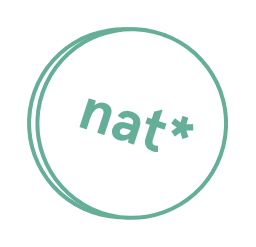WTF: Spain Goes from Dictatorship to Democracy
Spain’s Transition to Democracy
If you're more the reader type, you can read the transcript:
Hey guys, Nathalia here. Today is November 22 and it also marks 44 years since King Juan Carlos of Spain was sworn in as the King marking the return of the monarchy to Spain. So, what do I want to talk about this today? Not just because I’m Spanish
The story of Spain’s transition to democracy is fascinating. Anyone interested in political science, democracy building, and stories of monarchy, I strongly recommend you dig deeper (I have included lots of links for further reading below). It’s seriously straight out of an episode of Game of Thrones. But in a nutshell, the 1930s were a traumatic and brutal time in Spanish history - the Spanish Civil War. The government fell apart, the King abdicated the throne, and in 1939, Fascist General Francisco Franco emerged the victor and established a military dictatorship in Spain that would last nearly 4 decades. Good times.
During this time, the former royal family are living in exile in Portugal.
Franco took the son of the would be King under his wing, bringing him to Spain and tutoring him to become his future successor. Franco’s plan was that after his death, the monarchy would be reestablished and the young Prince Juan Carlos Franco died in 1975, famously saying he had left everything “attado y bien attado” (meaning well tied, with no loose ends), Juan Carlos takes the throne as King of Spain, but then, in one of the most stunning political plot twists of the 21st century, Juan Carlos announces to his country that he is a democrat and Spain would become a democracy. MIND BLOWN
I mean, just imagine this. There’s been a dictator running the country with the military for 4 decades. No freedom of speech and religion, political opponents were banned, sometimes killed, news and art was censored, divorce was illegal, the list goes on. And this young King comes to power and the Spanish people don’t really know anything about him except that Franco was his mentor. What are they supposed to expect? And Franco’s supporters within the government were not impressed with this surprise declaration.
So, as you can imagine, the transition to democracy was a long, delicate and arduous process. It was filled with brilliant political maneuvers, dirty corruption and even top secret meetings between communist spies and royal agents that sound straight out of the pages of a historical drama novel.
This is actually one of my favorite parts of this story. Because, imagine this, you are head of state and you are trying to build a democracy. By definition that means you cannot ban any political parties from participating. But this was a problem for Spain, because the Communist Party was considered by those in power to have been the cause of the Civil War, and after they lost, the Party was banned. How are you going to convince the conservative factions of the government and a large part of the Spanish population that it’s ok to let them back in? But,at the same time, how can you call yourself a democracy if you don’t? So, over months a few of the King’s most trusted aides held secret meetings with Santiago Carillo, the head of the Communist Party. He was in exile in France and there are stories of him entering Spain in the middle of the night in disguise for top secret meetings held in underground bunkers. There were so many moving parts here, secret deals and the men had to put an enormous amount of trust in their formal arch enemies. The legalization of the Communist Party is considered to be one of the most significant events in establishing Spanish democracy.The idea here was bring them and let the people decide for themselves.
A less discussed aspect of the story though is the logistical aspect of building democratic institutions. You can’t just snap your fingers and go from dictatorship In most cases, this occurs through bloody revolutions that tear everything down to rebuild from the bottom up. But in the case of Spain, the transition was peaceful. That is because of the Kings legal counselor and trusted advisor, Torcuato Mirando, approached it “de la ley a la ley”. Meaning, he literally took apart the legal fabric of the dictatorship and replaced it with a democratic one, law by law, one by one. It’s a brilliant play that has been studied as a model for democratic transitions ever since.
My biggest takeaway from all this, aside from the fact that I am a nerd and I love a good historical drama, is that it’s really hard to build free, democratic societies, but very easy to tear them down. We can’t take our freedoms for granted and we should recognize when they are being taken away. Not just when it impacts us personally, but any of our neighbors.
